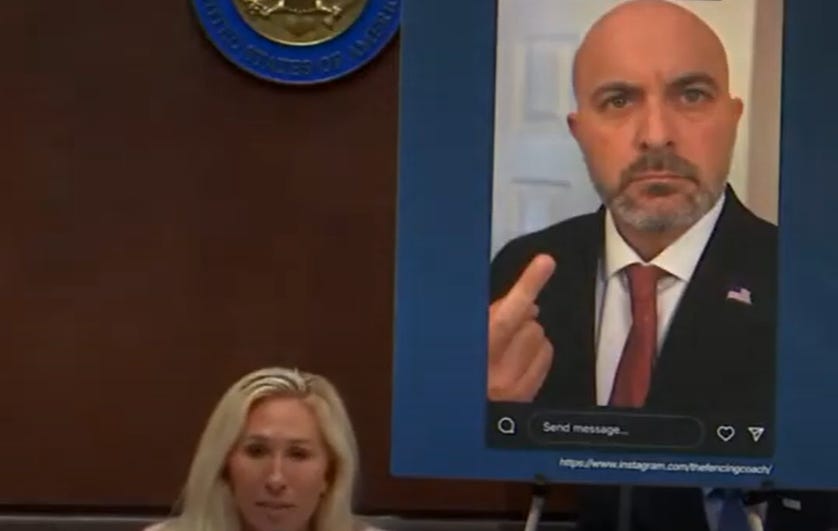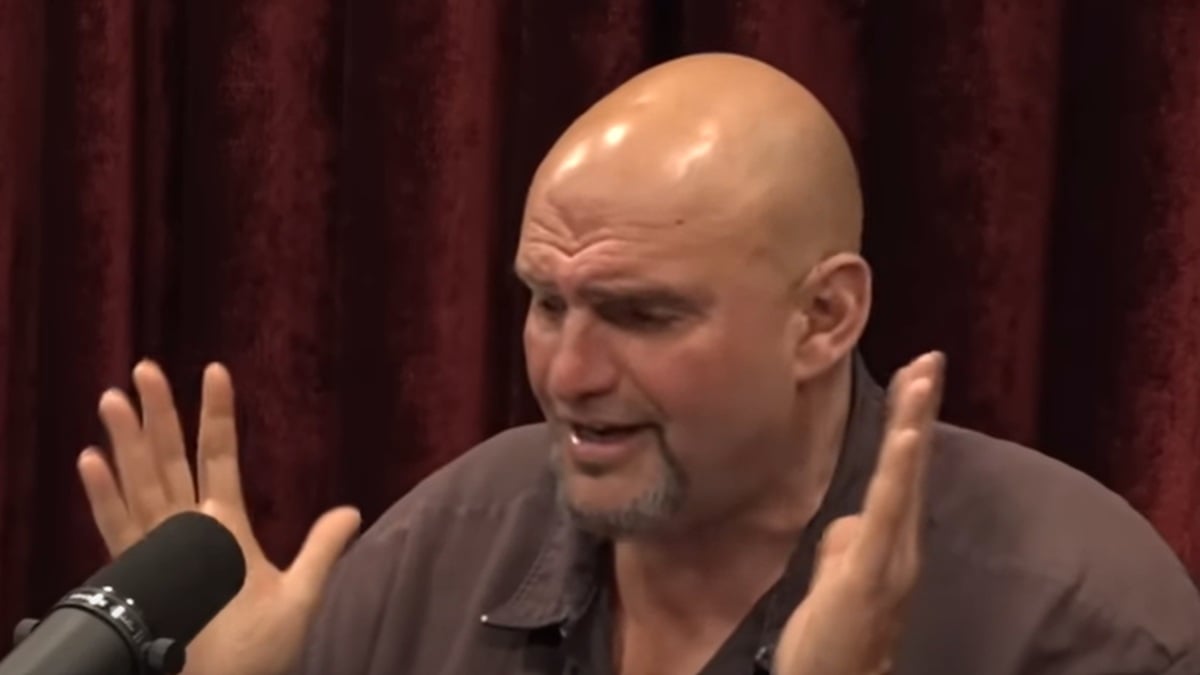Donald Trump insists he wants to annex Greenland, Canada, and the Panama Canal. Not since Thomas Jefferson’s Louisiana Purchase from France in 1803 or Secretary of State Seward’s purchase of Alaska from Russia in 1867 for 2 cents an acre has the U.S. sought such an ambitious territorial expansion. The idea of achieving these goals through implied military and economic threats is insane, counterproductive, and characteristically Trumpian. For a president who says he wants to end “forever wars,” a military move on Canada, our largest trading partner, NATO ally, and the world’s second-largest nation would be completely bananas, too crazy even for Trump. Of course, he’s ruled out invading Canada, which must be reassuring to our neighbors in the North.
When it comes to Greenland, he’s willing to use the armed forces if they are not too busy rounding up immigrants. It is the world’s largest island. Rich in natural resources, Greenland is pivotal in geopolitical importance. Although Greenlanders profess to be more North American than European and proclaim their political independence, they look to Denmark, which controls Greenland, for their foreign affairs and security piece. Its prime minister defiantly told Trump, “Greenland belongs to the people of Greenland.” What the “people of Greenland” might ask for is an open question. It has 56,000 citizens. The United States, if Congress permits it, could pay each Greenlander a million dollars to vote “join.” It would only cost $56 billion, and we would not even feel it.
While Denmark denounced the move, saying that Greenland is not for sale. Trump threatened to hit Copenhagen with tariffs “at a very high level” if its leaders don’t come to book. He questioned whether Denmark has the legal right to voice its opinions on the matter anyway. “We need it for national security,” he said while Don Jr. was visiting the island, sanctimoniously promising Greenlanders, “We’re going to treat you well.”
There is precedent for the U.S. buying territory from Denmark; it has done so peacefully, and the results have benefitted us.
In 1916, President Woodrow Wilson saw no need to badger, threaten, or engage in histrionics. He made the deal with Denmark, and the U.S. expanded its footprint.
The U.S. acquired the Caribbean islands of St. Croix, St. Thomas, and St. John.
The idea of snapping up the Danish West Indies had been kicking around for some time and was broached in the 19th century. A potential sale faltered in the Danish parliament in 1902, but by 1916, with German submarine hounding our coastlines, the U.S. made a $25 million offer for the island group, and the deal was struck. If you visit the beautiful islands today, you’ll still see Danish street names and plenty of signs for Carlsberg Beer
Gunboat diplomacy was out of fashion under Wilson but is even more verboten now. Every president since Wilson has been at pains to show that the U.S. is not interested in empire, imperialism, jingoism, or planting the flag. This is especially true in our hemisphere, where FDR promoted the “good neighbor” policy and JFK the “Alliance for Progress.” A century of expressions of goodwill gets reversed by Mr. Negotiator. If there is a chance of somehow buying a part of Greenland—and who knows if that’s really of great benefit to the U.S.—or developing closer ties (we already have a Space Force base there), it has been undermined, not strengthened, by Trump’s Speak Loudly Before You Even Have a Stick policy.
In Panama, Trump is playing with fire. Jimmy Carter ceded the Panama Canal to the Republic of Panama in 1974. The Canal is an important trade route for China, and the world, since it is a shortcut connecting the Pacific and Atlantic Oceans. The U.S. military overwhelmingly supported the treaties as the best way to ensure U.S. access to the trans-oceanic waterway and not end up in a pitched guerilla battle for decades.
Trump claims that the Panamanians have tilted towards China and raised rates in a way that is unfair to U.S. traffic. Accordingly, he argues, all bets are off, and the U.S. is entitled to seize and reclaim Panama for our economic security. He would not rule out using military force to achieve his objective.
Panama was explicit in rejecting Trump’s demand for a turnover. Its conservative president, José Raúl Mulino, defiantly released a video maintaining that “every square meter of the canal belongs to Panama and will continue to belong” to Panama.
A particular history is involved with the U.S. interest in the Panama Canal. In the early 20th century, we used a combination of military pressure and political maneuvering to secure control over its construction, indeed, to create Panama itself from what was a part of Colombia. This was a clear example of gunboat diplomacy, where the threatened use of military power was used to achieve U.S. objectives.
As for Canada, Trump ruled out using military force to make that country the 51st state, which was sporting of him. I doubt Michiganders gave him a mandate to invade Ontario when they backed Trump in November. Instead, he threatened 25 percent tariffs, saying he would make them do it through economic coercion. Canada is the second-largest country in the world and its ninth-largest economy.
Trump’s beef with Canada is reasonable. Indeed, he often has a point at the micro level: This U.S.-made widget is being unfairly taxed. Fredonia isn’t spending enough on defense. The larger idea that the U.S. benefits from a panoply of alliances that transcend any individual tiff is beyond his Zero-Sum cognition. So, he wants to pressure Canada to tighten the border and up its defense budget, and if it risks a trade war, then so what?
We subsidize Canada militarily. Their defense budget is only 1.3 percent of GDP, well short of the 2 percent yardstick required by NATO. We have a trade deficit with Canada. Most of our Canadian imports are oil and gas.
There is nothing new about the idea of annexing Canada. We considered it during the American Revolution, the War of 1812, and the Civil War. The foundation for the idea was “manifest destiny,” the concept that the U.S. had a divine right and duty to spread democracy, civilization, and economic development westward, from the Atlantic to the Pacific Ocean. The idea never got off the ground and is a matter of historical curiosity today.
Annexation comes at a challenging political time for Canada. The country is on its back foot. Its unpopular Prime Minister Justin Trudeau just resigned. He said there is not “a snowball’s chance in hell” that Canada would become a 51st State. But as part of a deal on trade without the nitwit rhetoric, the border and military expenditure might be accomplished, giving Trump a quick post-inaugural win.
As for renaming the Gulf of Mexico the Gulf of America, Trump elaborated, “What a beautiful name and it is appropriate.” Appropriate? It’s all a dealer’s choice. What we call the Rio Grande River, the Mexicans call Rio Bravo. What the Shias call the Persian Gulf, the Sunni Muslims call the Arabian Gulf. While the Gulf of America might appeal to some, it’s clumsy, like New York’s Avenue of the Americas, the name conceived by Mayor Fiorello LaGuardia to honor the Pan-American movement and foster goodwill among the nations of the Americas. Like most New Yorkers, I still call the artery Sixth Avenue.
Ultimately, America is already the envy of the world. We are the world’s third-most populous country; it is fourth largest by land; we have the biggest economy, the strongest military, the best universities, and the most significant cultural reach. America is great. Now, and we hope forever
It seems anomalous for a president who so vociferously opposes immigration to seek the enlargement of our global footprint at the same time.
James D. Zirin, author and legal analyst, is a former federal prosecutor in New York’s Southern District. He is also the host of the public television talk show and podcast Conversations with Jim Zirin.











